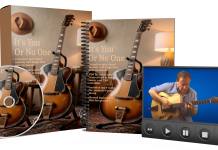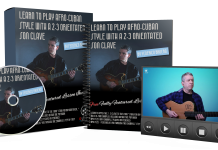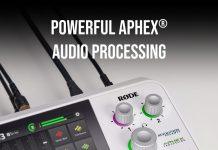This post may contain affiliate links. As an Amazon Associate, Guitar & Music Institute may earn commissions from qualifying purchases.
Have you ever felt overwhelmed trying to balance learning guitar with your busy schedule? If you’re juggling school, work, family, or other commitments, finding time for practice can be challenging. Yet, learning to play guitar is a rewarding hobby that can provide a creative outlet and a sense of accomplishment. With online guitar lessons, you can create a flexible practice schedule tailored to your personal needs and pace.
Understanding the Benefits of an Online Guitar Learning Approach
Online guitar lessons have revolutionized the way you can learn to play. You no longer need to adhere to a fixed schedule or location, allowing you the freedom and flexibility to learn from virtually anywhere.
Flexibility and Convenience
The beauty of online guitar lessons lies in flexibility. You can pause, rewind, or rewatch lessons at your convenience. This means you can fit guitar practice into your schedule without the pressure of attending a fixed class. You also have the opportunity to learn at your own pace, which can prevent feelings of being rushed or overwhelmed, enhancing your overall learning experience.
Access to Diverse Resources
When taking online guitar lessons, you gain access to a wealth of resources. From video lessons and instructional PDFs to online communities and practice tools, the variety can help keep your learning engaging and comprehensive. This range of materials can also cater to different learning styles, making it easier for you to absorb and apply new techniques.
Connecting with a Global Community
Online platforms offer the ability to connect with fellow learners and instructors from around the world. Engaging in forums, online groups, and virtual jam sessions can offer additional support, motivation, and inspiration in your learning journey.
Setting Clear Goals for Your Guitar Learning Journey
Before crafting a practice schedule, it’s essential to define what you want to achieve with your guitar playing. Establishing clear, achievable goals can provide direction and motivation.
Types of Goals to Consider
Your goals can vary, from mastering a specific song to understanding music theory or improving finger dexterity. Setting both short-term and long-term goals can help keep your practice focused and measurable.
| Goal Type | Description |
|---|---|
| Short-term Goals | These are achievable in days or weeks, like learning a simple melody or mastering a particular chord progression. |
| Long-term Goals | These might include performing a song flawlessly, improvising, or composing your own music. |
SMART Goals
Using the SMART criteria can be a helpful way to formulate your goals: Specific, Measurable, Achievable, Relevant, and Time-Bound. This framework ensures that your goals are clear and attainable, providing a structured path to follow.
Creating Your Effective Practice Schedule
Once your goals are set, it’s time to build a practice schedule that helps you reach them.
Assess Your Available Time
Begin by assessing how much time you can realistically dedicate to practice each week. Consider your daily routines and responsibilities, and look for pockets of time that might be used for guitar practice. This could be early morning sessions, lunch breaks, or evenings.
Structuring Your Practice Sessions
To maximize efficiency and progress, break down your practice sessions into focused segments. Here’s a sample structure:
| Segment | Activity | Duration |
|---|---|---|
| Warm-up | Finger exercises or scales | 5-10 minutes |
| Technique | Chord changes, strumming patterns, fingerpicking | 10-15 minutes |
| Songs | Practice current songs or new pieces | 15-20 minutes |
| Theory | Learn new theory, ear training, or reading music | 5-10 minutes |
By dividing your time into specific areas, you can ensure a balanced approach to improving your skills.
Frequency and Consistency
Decide on the frequency of your practice sessions. Aim for consistency over intensity. Practicing daily for shorter periods is generally more beneficial than irregular, lengthy sessions. Music skills build over gradual, repeated practice, so finding a routine you can stick with is critical.
Choosing the Right Online Guitar Lessons
With numerous platforms available, selecting the right online lessons can impact your learning trajectory.
Platform Research
Evaluate platforms based on reviews, course structures, and the expertise of instructors. Consider whether they offer beginner courses, advanced lessons, or specialized genres that interest you.
Trial Periods and Subscriptions
Many platforms offer trial periods for new users. Take advantage of these to gauge the quality of the lessons and determine if the teaching style aligns with your learning preferences.
Incorporating Rest and Reflection in Your Schedule
Allowing time for rest and reflection is just as important as practice itself.
Importance of Rest
Just as your body needs rest after physical exertion, your mind benefits from breaks after intensive learning sessions. Make sure to incorporate rest days into your schedule to prevent burnout and keep your practice enjoyable.
Reflecting on Progress
Set aside time periodically to reflect on your achievements and reconsider your goals. This reflection helps maintain motivation and can clarify areas that may require more focus in future practices.
Maintaining Motivation and Overcoming Challenges
Learning an instrument can sometimes be a daunting journey. Staying motivated through the ups and downs with tips can make a big difference.
Finding Inspiration
Regularly seek out inspirations, such as watching performances, connecting with fellow learners, or participating in online challenges. Diverse inputs can refresh your enthusiasm for playing.
Handling Plateaus
Expect occasional plateaus in your progress. When you feel stuck, try switching your focus to another aspect of learning. This variation can reignite your interest and provide a different perspective on challenges.
Additional Tips for an Engaging Practice Schedule
Here are some additional pointers to keep your practice sessions productive and enjoyable.
Use a Metronome
A metronome helps develop your timing and rhythm, essential skills for any musician. Begin practicing with slow tempos and gradually increase the speed as you become more comfortable.
Record Your Sessions
Recording your practice can be a powerful tool for feedback. Listening to recordings allows you to evaluate your performance objectively and track your progress over time.
Stay Open to Feedback
Be open to constructive criticism from more experienced players or teachers. Feedback is vital for growth, and actively seeking it can highlight areas you might overlook.
Embracing the Journey of Learning Guitar
Embrace the journey of learning guitar as a lifelong adventure, not just a destination. Remember to enjoy the process, celebrate milestones, and cherish the skills you develop along the way. With a well-structured practice schedule, clear goals, and the right resources, you’re set to enhance your guitar playing experience significantly. Happy strumming!

This post may contain affiliate links. As an Amazon Associate, Guitar & Music Institute may earn commissions from qualifying purchases.

















